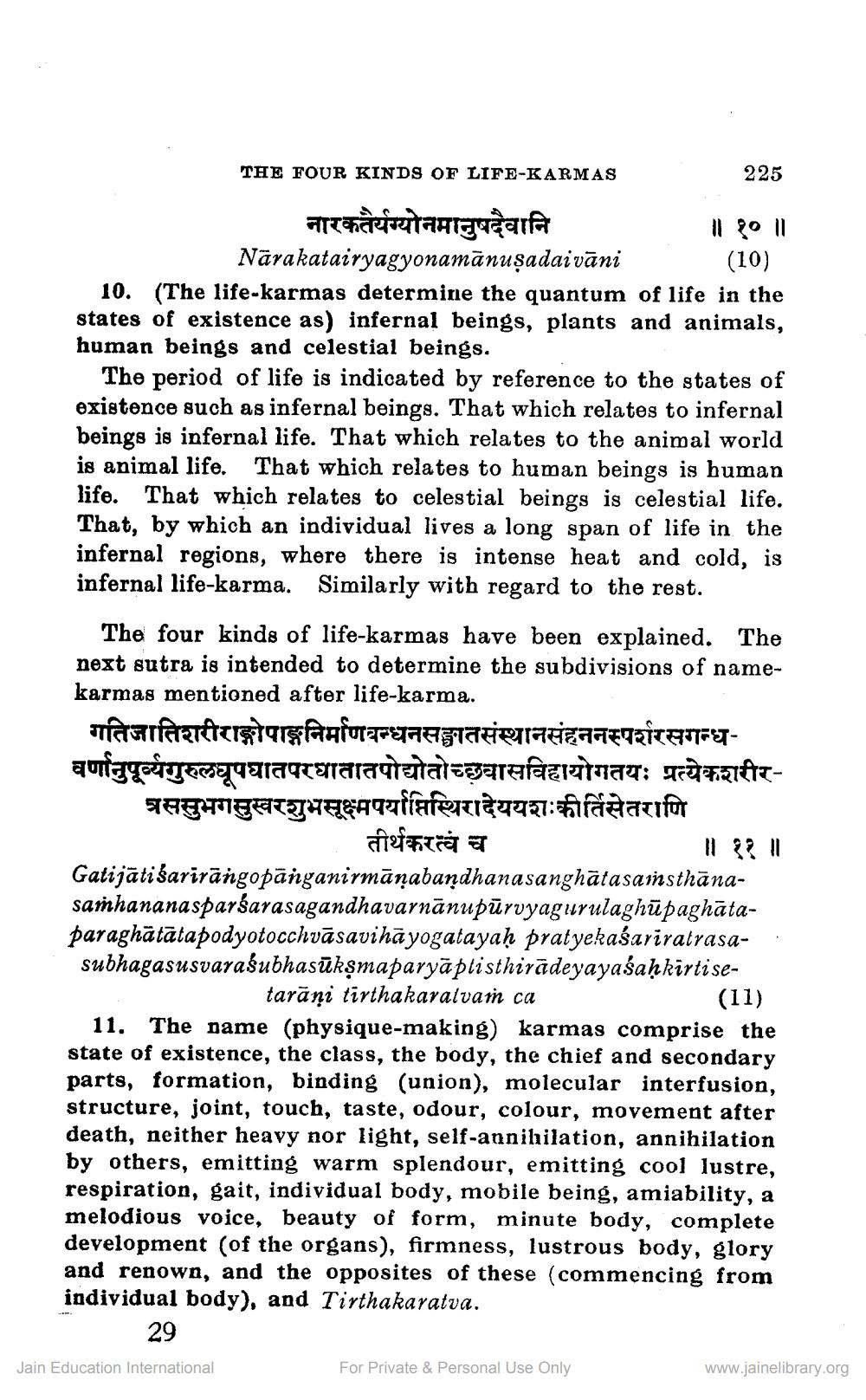________________
THE FOUR KINDS OF LIFE-KARMAS
नार कतैर्यग्योनमानुषदैवानि
Narakatairyagyonamānuṣadaivāni
10. (The life-karmas determine the quantum of life in the states of existence as) infernal beings, plants and animals, human beings and celestial beings.
225
The period of life is indicated by reference to the states of existence such as infernal beings. That which relates to infernal beings is infernal life. That which relates to the animal world is animal life. That which relates to human beings is human life. That which relates to celestial beings is celestial life. That, by which an individual lives a long span of life in the infernal regions, where there is intense heat and cold, is infernal life-karma. Similarly with regard to the rest.
॥ १० ॥
(10)
The four kinds of life-karmas have been explained. The next sutra is intended to determine the subdivisions of namekarmas mentioned after life-karma.
गतिजातिशरीराङ्गोपाङ्ग निर्माणबन्धन सङ्घातसंस्थान संहननस्पर्शरसगन्धवर्णानुपूर्व्यगुरुलधूपघातपरघातात पोद्योतोच्छ्वासविहायोगतयः प्रत्येकशरीरत्रससुभगसुस्वरशुभसूक्ष्मपर्याप्तिस्थिरा देययशः कीर्ति सेतराणि तीर्थरत्वं च
Gatijati sarirangopānganirmāṇabandhanasanghatasamsthanasamhananasparśarasagandhavarnānupūrvyagurulaghūpaghata
29
Jain Education International
paraghatatapodyotocchvāsavihayogatayaḥ pratyekaśariratrasa
subhagasusvarasubhasūkṣmaparyaptisthirādeyayaśaḥkirtise
tarani tirthakaratvam ca
For Private & Personal Use Only
॥ ११ ॥
(11)
11. The name (physique-making) karmas comprise the state of existence, the class, the body, the chief and secondary parts, formation, binding (union), molecular interfusion, structure, joint, touch, taste, odour, colour, movement after death, neither heavy nor light, self-annihilation, annihilation by others, emitting warm splendour, emitting cool lustre, respiration, gait, individual body, mobile being, amiability, a melodious voice, beauty of form, minute body, complete development (of the organs), firmness, lustrous body, glory and renown, and the opposites of these (commencing from individual body), and Tirthakaratva.
www.jainelibrary.org




